Tom's Guide Verdict
Husqvarna’s Automower 415X is a very good midrange robot lawnmower with some clever features. However, it can’t handle hills as easily as Husqvarna’s 435X AWD robot lawnmower.
Pros
- +
Cool design
- +
Very quiet
Cons
- -
Takes a while to generate a map
- -
Gets stuck on hills, ruts
Why you can trust Tom's Guide
Size: 36.6 x 21.7 x 11.4 inches
Weight: 38 pounds
Battery capacity: 5 Ah
Mow time: 100 mins
When I first tested a robot lawnmower — the Husqvarna Automower 435X AWD — I loved that it saved me from one of my chores, but lamented its high price — nearly $5,000.
Enter the Husqvarna 415X, which costs less than half as much, and has many of the same features — such as mapping, no-go zones, and more — minus the all-wheel drive. Could it handle the same steep incline of my yard? Read the rest of my Husqvarna 415X review before you decide to drop $2,000 on this robot lawnmower.
Husqvarna Automower 435X AWD review: Price and availability
The Automower 415X was first released in 2022, and costs $1,999. It’s the company’s midrange consumer model, and has rear-wheel drive. Like Husqvarna’s other X-series robot lawnmowers, it has GPS-assisted navigation and an anti-theft geofencing, so it won’t work outside a proscribed area. It also supports the use of additional guidewires to more efficiently mow your lawn.
While my front lawn — a few hundred square feet at most — is probably too small for such a pricey robot lawnmower, I wanted to try it out there to see if it could handle my yard’s 25-degree slope as well as the 435X. If your yard isn’t as steep, you can probably get away with a much more inexpensive unit.
Here’s a rundown of all of Husqvarna’s consumer robot lawn mowers, and the type and size yard they can handle.
| Row 0 - Cell 0 | Price | Working area | Max cutting height | Mow time | Max incline |
| 115H | $699 | 0.4 acres | 3.6 in. | 60 mins | 30% |
| 415X | $1,999 | 0.37 acres | 2 in. | 50 minutes | 40% |
| 430X | $2,499 | 0.8 acres | 2.4 in. | 145 mins | 45% |
| 430XH | $2,499 | 0.8 acres | 3.6 in. | 145 mins | 45% |
| 450X | $3,299 | 1.25 acres | 2.4 in. | 270 mins | 45% |
| 450XH | $3,299 | 1.25 acres | 3.5 in. | 270 mins | 45% |
| 435X AWD | $3,999 | 0.9 acres | 2.8 in | 145 mins | 70% |
| 450X EPOS | $5,899 | 2.5 acres | 2.4 in | 210 mins | 45% |
| 450XH EPOS | $5,899 | 3.5 acres | 3.6 in | 210 mins | 45% |
Husqvarna Automower 415X review: Design
Unlike the 435X AWD, which has a Batmobile-eque articulated design, the 415X hews more to the traditional robot lawnmower look. It’s definitely not as show-stopping: far fewer of my neighbors gawked at it while it was making its rounds.
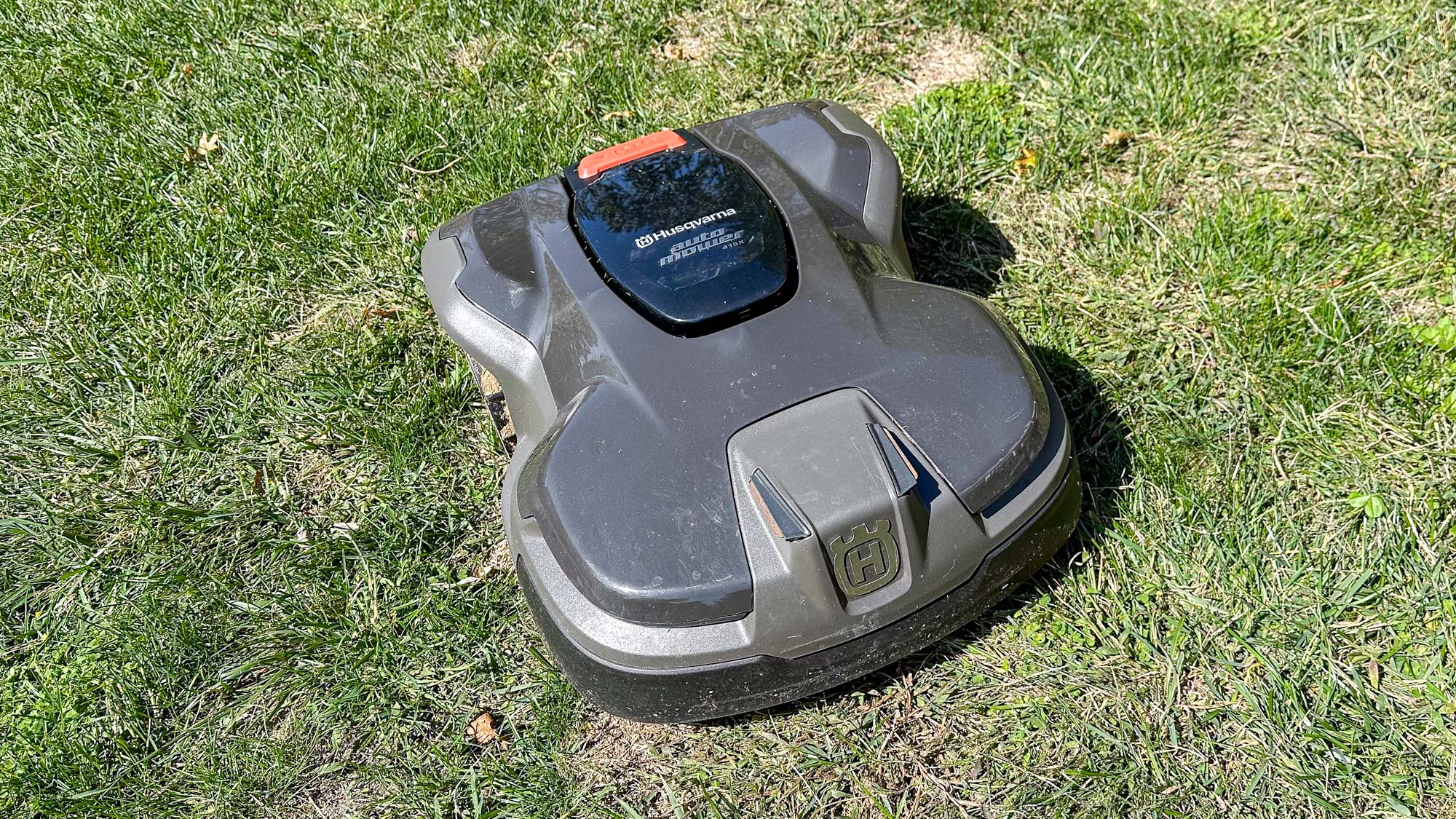
It has two large wheels in the rear which drive the mower, with two smaller wheels in the front on the underside.
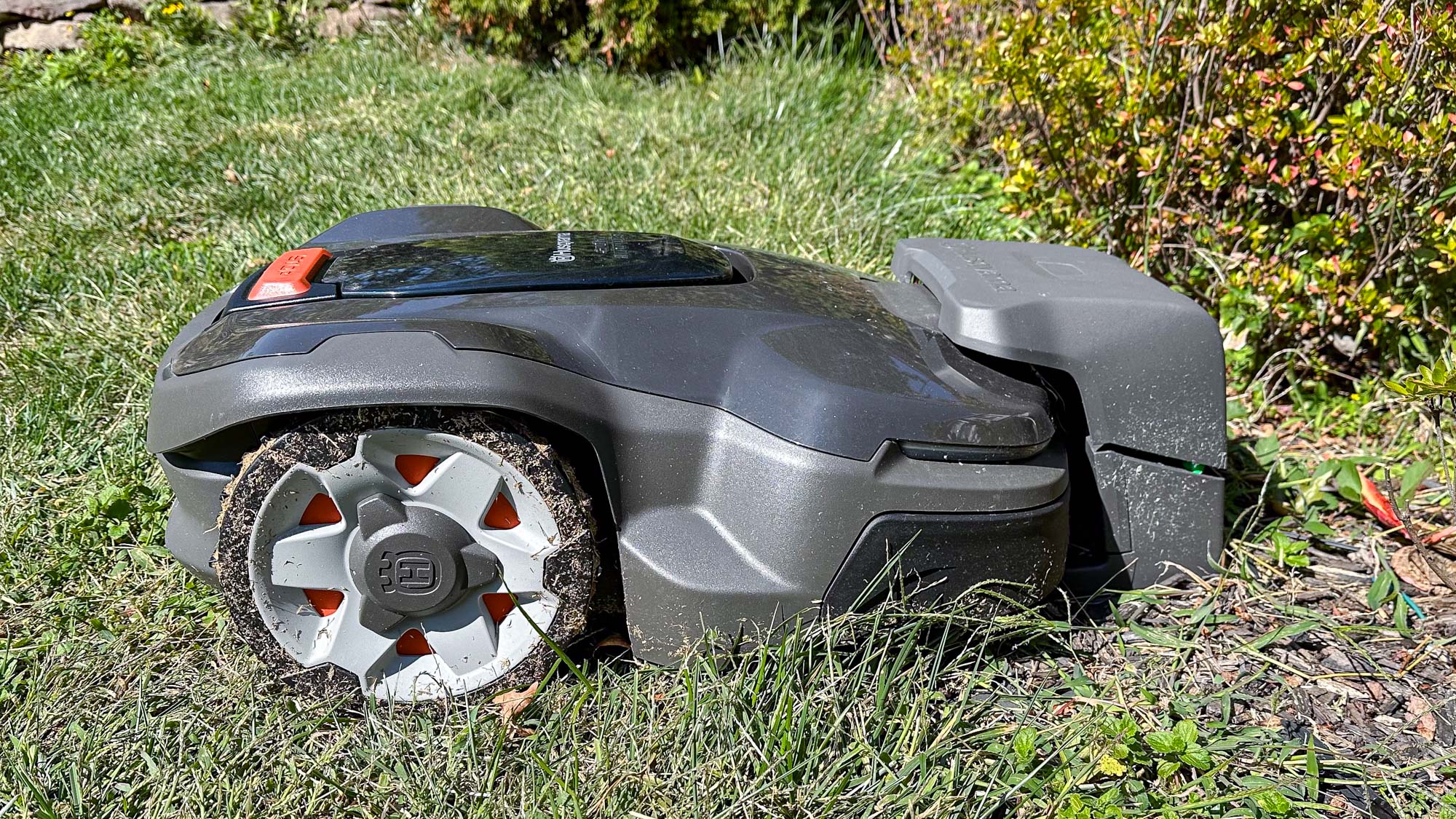
The entirety of the 415X’s plastic body is gray, with the exception of some orange accents on the wheels and a large orange “STOP” button on top. Press this button, and a panel opens to reveal the mower’s control panel and display.
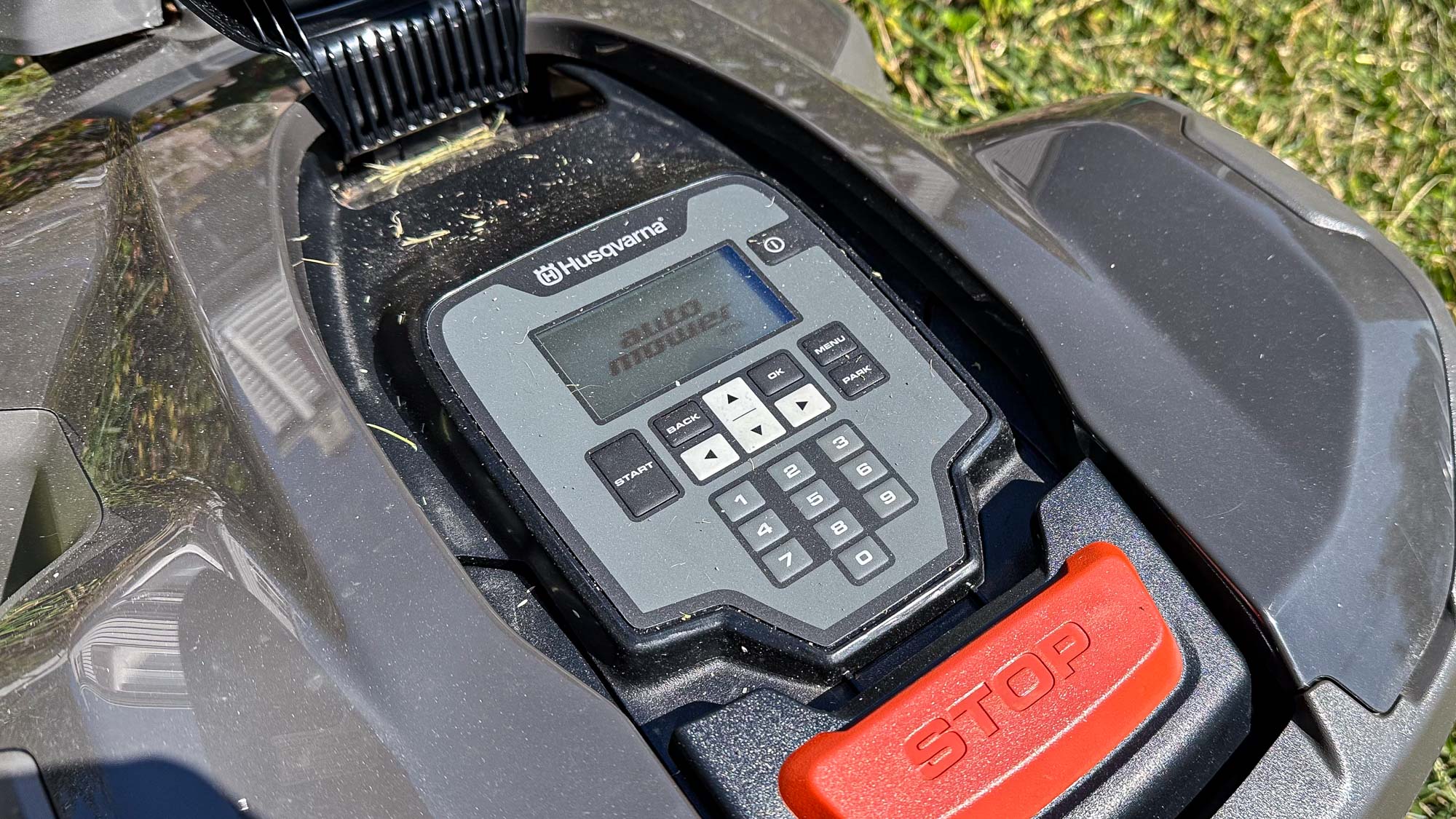
The control panel itself is a membrane-style number pad with a few extra buttons for navigation; the LCD display is bright and the on-screen menus are easy to decipher.
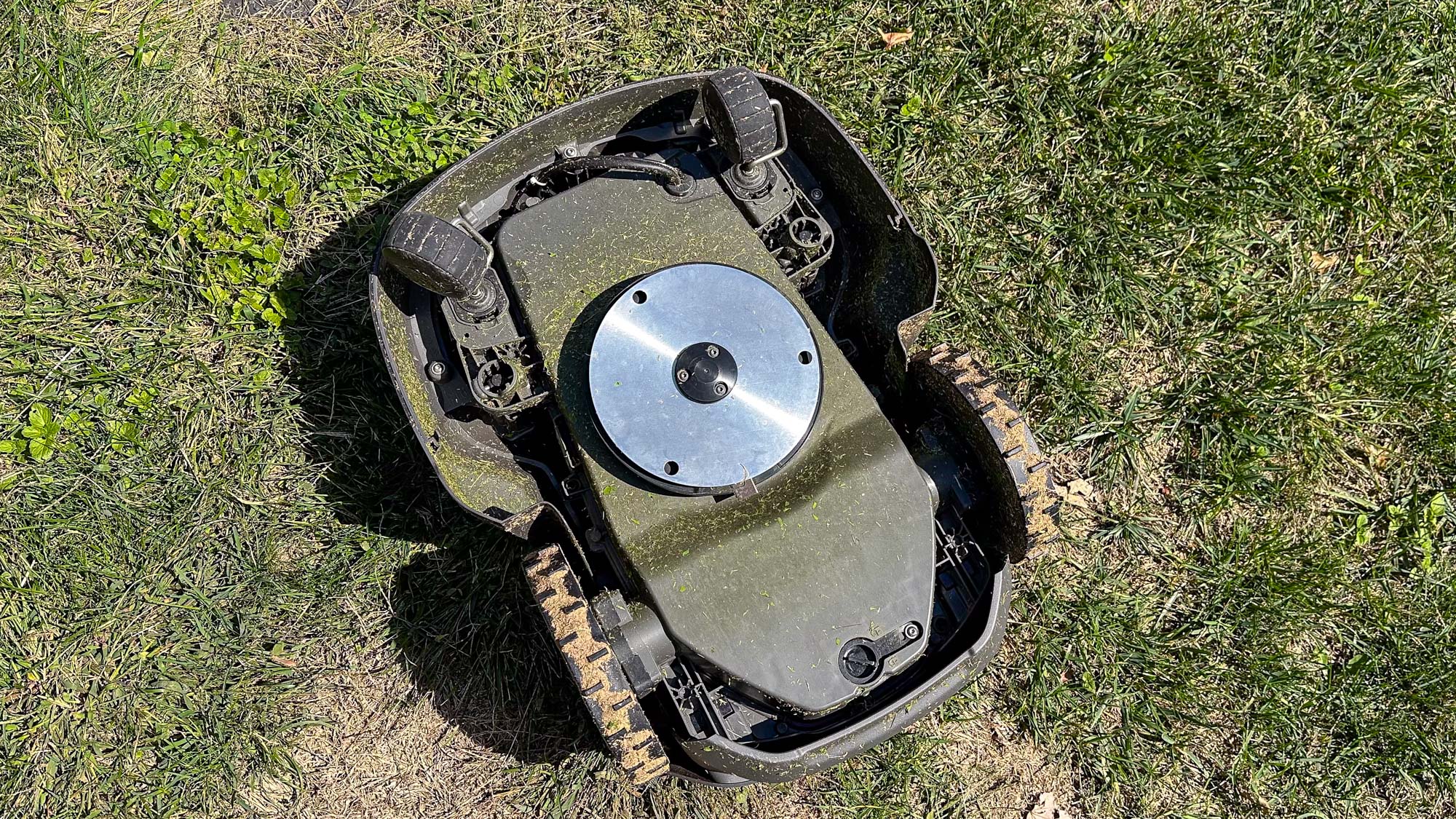
On the underside of the 415X are its cutting blades: these are essentially three razor blades that spin around on a large metal disk. The blades are designed to last 3-4 months, depending on how often you mow your lawn.
Husqvarna Automower 415x review: Installation
The majority of robot lawnmowers use what’s essentially an invisible fence to stay in your yard. As part of the setup process, you have to string a wire around the edge of your property; this wire connects to the base station, which sends a low-voltage current through the wire. The robot lawnmower senses this current and turns to stay on your lawn.
Included with the 415X is a 1,300-foot spool of wire and a bunch of small plastic stakes. Installing this boundary wire is the most time-consuming aspect of the entire process, as you have to work your way around your yard, pounding in the stakes every foot or so. (You’ll also likely have to adjust the wire later depending on how the robot lawnmower reacts when it encounters objects near the wire.)
While tedious, installing the boundary wire yourself is far cheaper than hiring a pro to do it — as is required with Husqvarna’s pricier models, like the 435X.
Husqvarna Automower 415X review: Performance
I was a little nervous to see how the 415X would handle the grade of my front yard compared to the 435X. However, I was pleasantly surprised to see that the 415X worked nearly as well as the much pricier 435X, cutting my lawn and handling the hill very well.
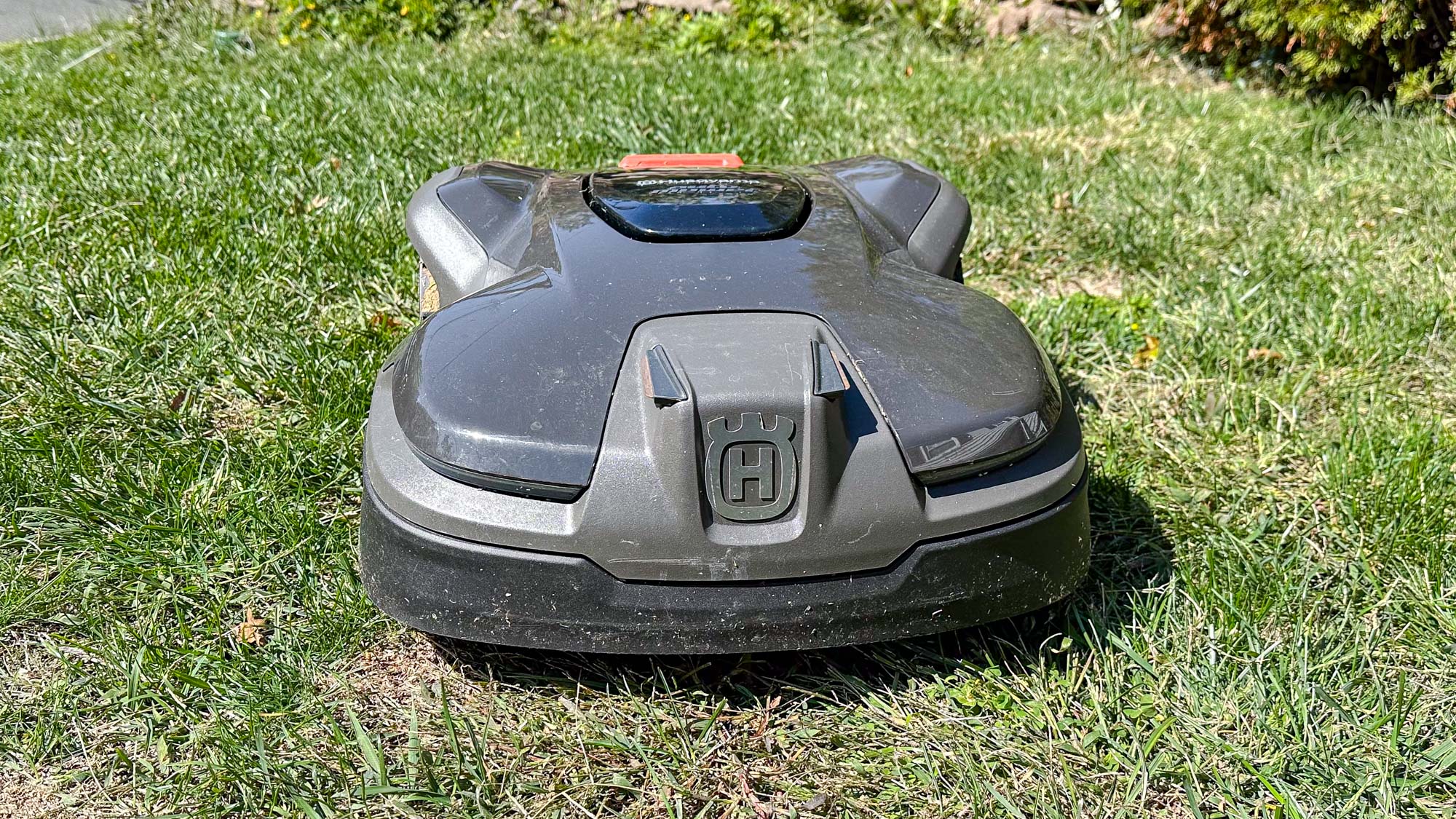
However, the 415X did have trouble on a number of occasions. It got stuck regularly around the edges of my lawn, where it couldn’t extract itself from higher grass or the steeper slope of the yard. A couple of times, it became stuck when the ground was too wet, and its wheels couldn’t gain enough traction. This happened once or twice on grass — right after a rainstorm — and a few times on a bare patch of dirt (some of my grass died over the summer during an extended drought).
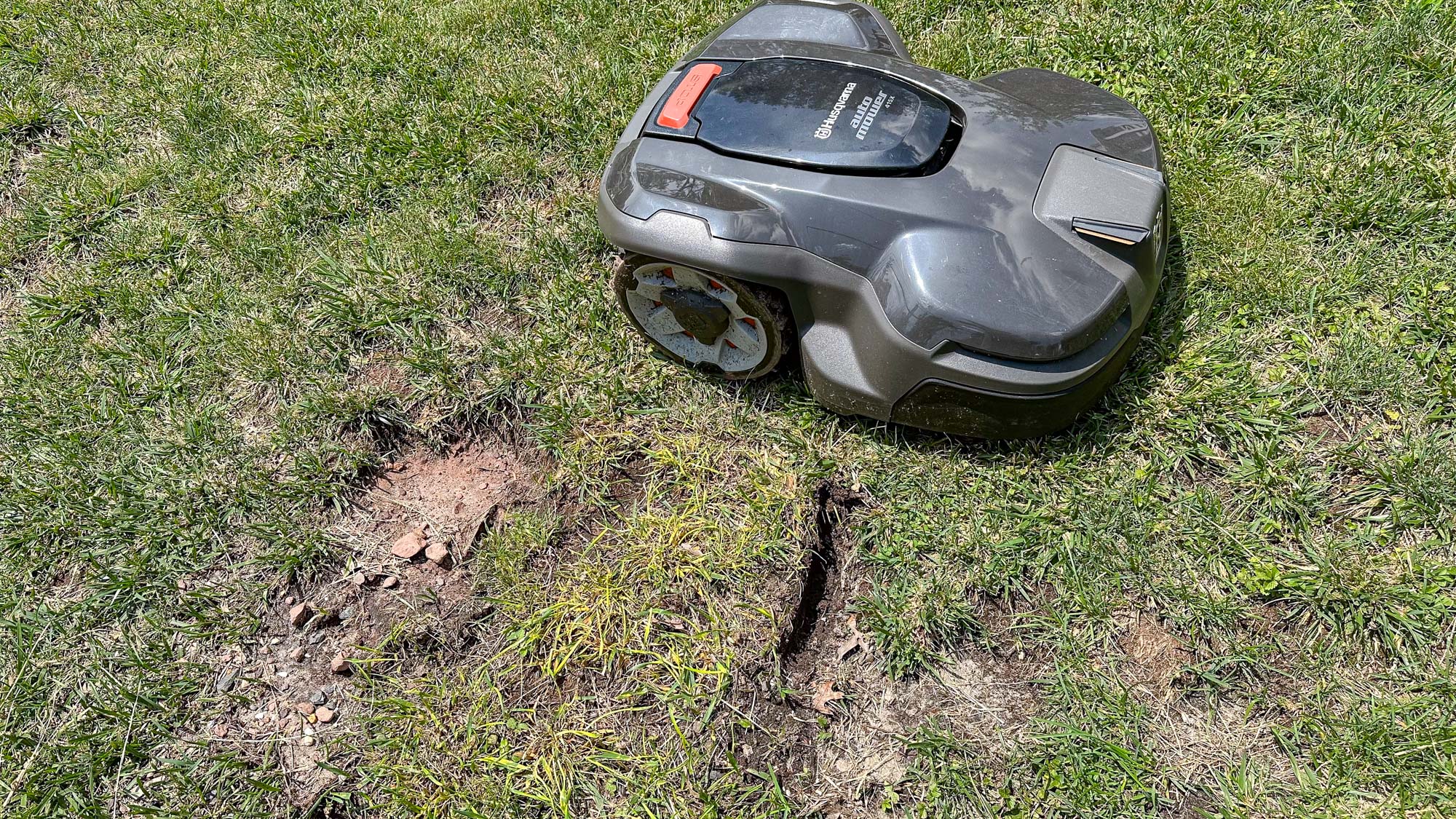
It would dig a small rut in my yard, and then send me a notice to the Husqvarna smartphone app that it needed help. I found I needed to make some adjustments in the app and to the boundary wire so it wouldn’t get caught in the same spots.
I then moved the 415X to my back yard, which is much more level; here, it had no problems mowing.
Husqvarna Automower 415X review: App
Husqvarna’s automower app gives you access to additional features of the 415X, but it’s not as comprehensive as the apps you’ll find with some of the best robot vacuums. Within the Husqvarna app, you can create a schedule for when it should mow your lawn, adjust the cutting height, and view statistics of how often the mower cut your grass.
The Husqvarna app also has a mapping feature, but you can’t use it until the mower has run for about 50 hours, and has a better sense of where you’ve marked out the borders. After the map has been generated, you can create stay-out zones as well as re-wilding zones, both of which tell the mower to not enter those areas. It’s a bit difficult to create and edit these zones, though. Due to a limitation with the Google Maps API, you can’t zoom into your yard past a certain point, so it’s not easy to fine-tune these zones.
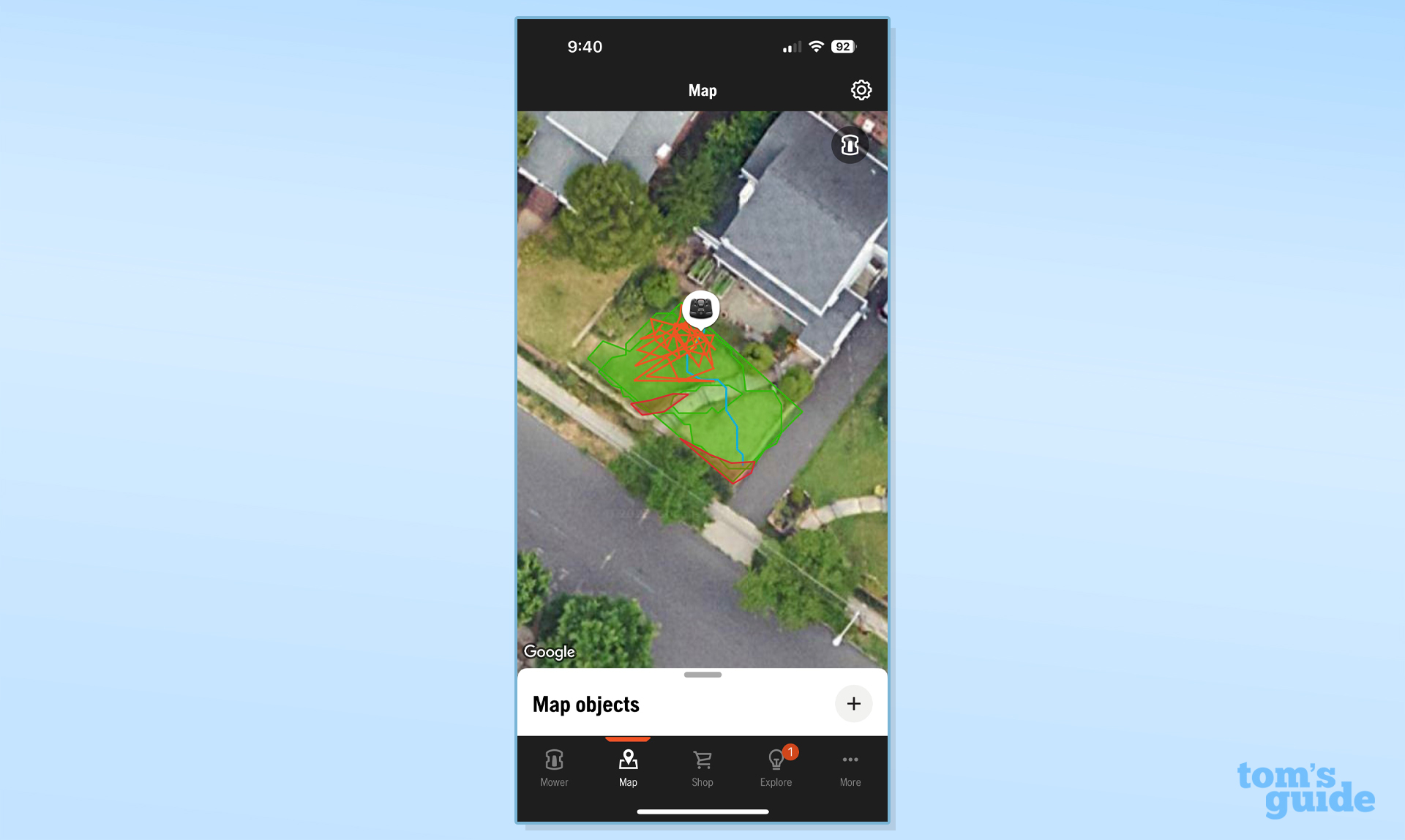
While the mower doesn’t have Wi-Fi, it does have Bluetooth and 4G LTE (from either AT&T or T-Mobile), so you can check on the 415X’s status remotely. You can also set the geofencing radius for the mower, so that if it strays outside the area, it will stop working and send you an alert, along with its location. It’s a handy anti-theft feature. However, you have to be within Bluetooth range to change any settings, such as the schedule and cutting height.
You can also connect the mower with Alexa, Google Assistant, and IFTTT, so that you can control it with a voice assistant, or create automations. One clever IFTTT routine will tell the mower not to mow if there’s rain in the forecast.
Husqvarna Automower 415X review: Verdict
I feel like it’s only a matter of time until robot lawnmowers become as popular as robot vacuums, but it’s still in the early going. At $2,000, the Husqvarna Automower 415X is still pretty pricey, even if it’s the second-cheapest model that the company offers — but it’s a pretty solid performer, keeping my grass trimmed.
One of the company’s newest models, the Automower 450XH EPOS, uses GPS to fix its position, so not only do you no longer have to install a boundary wire, but you can also mow your yard in straight lines, but also checkerboard or triangular patterns. However, it costs nearly $6,000.
While the Automower 415x can’t handle grades as steep as the Automower 435X AWD — and I wish it were easier to customize the no-go zones, it does a good job otherwise, and for half the price.

Michael A. Prospero is the U.S. Editor-in-Chief for Tom’s Guide. He oversees all evergreen content and oversees the Homes, Smart Home, and Fitness/Wearables categories for the site. In his spare time, he also tests out the latest drones, electric scooters, and smart home gadgets, such as video doorbells. Before his tenure at Tom's Guide, he was the Reviews Editor for Laptop Magazine, a reporter at Fast Company, the Times of Trenton, and, many eons back, an intern at George magazine. He received his undergraduate degree from Boston College, where he worked on the campus newspaper The Heights, and then attended the Columbia University school of Journalism. When he’s not testing out the latest running watch, electric scooter, or skiing or training for a marathon, he’s probably using the latest sous vide machine, smoker, or pizza oven, to the delight — or chagrin — of his family.

